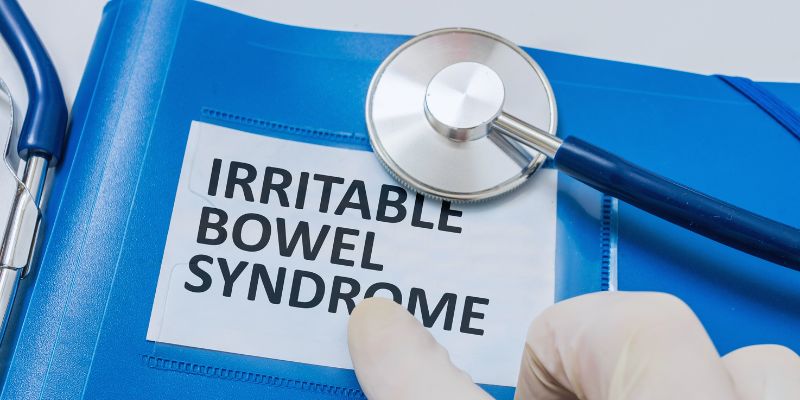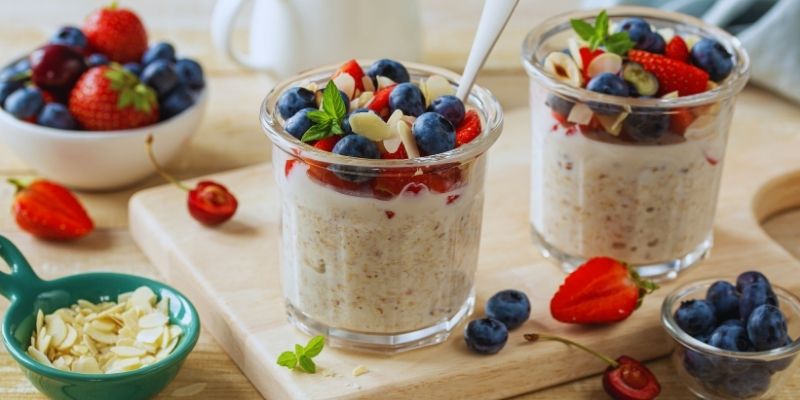Facing irritable bowel syndrome without clear guidance feels overwhelming. The good news is that a proper diet can significantly affect your gut health. A disciplined schedule will help you experience a better gut and lessen uncomfortable symptoms. Success demands knowledge of what to eat and avoid. This diet for irritable bowel syndrome offers useful advice and food selections. You will also learn the finest techniques to prevent IBS triggers.
You can relieve symptoms by following and raising your everyday comfort level. Control of IBS begins with wise daily dietary choices. Stay with foods your digestive system will find mild. Keep yourself updated about possibly uncomfortable ingredients. A good diet lets you live completely and feel better. Let's explore the best guide for controlling symptoms of irritable bowel syndrome by food.
Understanding Irritable Bowel Syndrome and Diet Connection
Millions of people all around have a chronic digestive disorder known as irritable bowel syndrome. Among the symptoms include constipation, diarrhea, bloating, and stomach ache. Although the cause of IBS is still unclear, diet plays a key role in managing symptoms. Some foods might cause IBS symptoms; hence, you should pay close attention to your eating patterns. A good irritable bowel syndrome diet should center on consistency and balance. Often aggravating factors are drink, caffeine, and high-fat foods.
Selecting low-fat, low-density, readily digestible foods high in fiber helps reduce pain. Many patients find great advantages in monitoring meals and symptoms in a food journal. Finding personal triggers helps one to have more control over IBS problems. Changes in diet can provide long-term comfort without involving medicines. One often used and successful method for controlling IBS is low FODMAP diets. A good diet helps digestion and lessens flare-ups. Good dietary habits enhance general wellness and gastrointestinal performance. Better living with IBS depends on an awareness of how your body responds to food.

Best Foods for Managing Irritable Bowel Syndrome
The appropriate foods can help reduce IBS symptoms. Control of symptoms and digestion depends much on soluble fiber. Gentle fiber comes from sweet potatoes, carrots, and oats. Without aggravating bowel movements, they help control them. Easy on the stomach are lean proteins, including fish, turkey, and chicken. These proteins provide important nutrients without aggravating uncomfortable flare-ups. Most people are safe with low-FODMAP foods, including strawberries, blueberries, and bananas. They provide vitamins without taxing the gut.
Yogurt and kefir, among other fermented foods, boosts good intestinal flora. These can naturally assist in balancing digestion and ease bloat. Just as much as meal choices, cooking techniques count. Better than fried are baking, steaming, and grilling. Eating small, frequent meals is better than having large portions at once. Maintaining good hydration from lots of water helps digestion and lessens constipation. Selecting these foods regularly guarantees improved health and long-term IBS symptom alleviation.
Foods to Avoid with Irritable Bowel Syndrome
Some foods should be limited or avoided as they might greatly aggravate IBS symptoms. Common offenders are high-fat foods such as fried things, pizza, and creamy sauces. They might induce uncomfortable cramps or diarrhea and slow down digestion. Foods heavy in insoluble fiber, such as bran and raw vegetables, could further aggravate symptoms. Foods high in gas, such as beans, lentils, and onions, can cause bloating and pain for individuals with IBS, and artificial sweeteners such as mannitol and sorbitol cause problems.
Sugar-free gum, candy, and certain diet goods include these sweeteners. Dairy items such as milk, cheese, and ice cream might create problems, particularly for lactose-intolerant people. For certain patients, cereals, including gluten—wheat, barley, and rye—may aggravate their conditions. Reducing carbonated drinks also helps ease gas and bloating. People with IBS may feel better by avoiding certain meals. Selecting foods carefully helps digestion to be more efficient and reduces needless discomfort.
Building Your Personalized IBS Diet Plan
Developing a customized irritable bowel syndrome diet requires first knowing your body's demands. Start by cutting known trigger foods from your daily diet. Start with safe foods to see what you can handle. Keeping a food journal helps one properly monitor symptoms and eating patterns. Under the direction of a dietician, many find success on a low FODMAP diet. It targets lowering particular kinds of fermentable carbs that aggravate IBS. Eating fewer amounts helps the digestive system not become overly taxed.
Consistent meal timings help to lower bloating and promote consistent digestion. Meals balanced in lean proteins, soluble fiber, and healthy fats help to maintain intestinal health. Making a huge difference is avoiding processed foods and concentrating on fresh ingredients. Over time, consistent food choices help to improve digestive health. You have to pay attention to your body and change your food. Everybody has various IBS triggers; hence, personalizing is important. Good planning guarantees a better and healthier digestive tract.

Tips for Long-Term Success on an IBS Diet
Keeping up a good irritable bowel syndrome diet requires awareness and commitment. Planning your meals ensures you always have healthy options ready. Close reading of food labels helps to avoid inadvertent trigger ingredient consumption. Among other stress-reducing strategies, gentle exercise, yoga, and meditation help with intestinal health. Since stress usually aggravates IBS symptoms, control of it is essential. Drinking lots of water all day helps to keep one hydrated and promotes digestion.
Including probiotic foods like yogurt or kefir into your everyday diet helps balance gut flora. See a nutritionist focused on digestive health for individualized recommendations. Regular diet review helps you to change with the demands and symptoms. Flexibility in meal choices guarantees nutritional balance even if basic, safe foods should always be maintained. Community support groups can provide emotional encouragement and advice for keeping on target. Celebrate little successes like days free from symptoms to keep driving. The correct diet and way of living will help one live well with IBS.
Conclusion:
Daily comfort and health can be enhanced by following a disciplined irritable bowel syndrome diet program. Choosing the ideal meals for IBS control helps the digestive system and reduces uncomfortable symptoms. Maintaining knowledge about foods to avoid with IBS helps to lower flare-ups and pain. Good habits and smart dietary choices have a big impact. Dieting to control IBS helps you lead a better, more comfortable life. Remember that consistency and patience are vital. Following irritable bowel syndrome, diet guarantees the best outcomes by listening to your body. Over time, little daily adjustments might add up to great changes. Give your digestive health top priority, and then enjoy the advantages of healthy eating.












